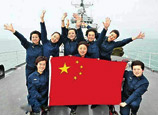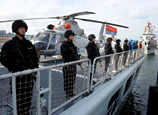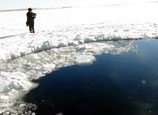
Wang Yuzhu, a researcher at the National Institute of International Strategy at the Chinese Academy of Social Sciences, said the nuclear test could adversely affect the DPRK's economy.
"Unilateral sanctions, if introduced, will hit the DPRK very hard, as the country is less developed in agriculture and industrialization," he said.
However, Dong Manyuan, deputy director of the China Institute of International Studies, dismissed the possibility of unilateral sanctions from China and the suspension of the two economic zones as China constantly opposes sanctions, and "negotiations are the only resolution to the nuclear issue on the Korean Peninsula".
Foreign Ministry spokesman Hong Lei said at a newsbriefing on Monday that "the situation of the peninsula currently is sensitive and complicated", while appealing for all parties involved not to take any action that could worsen the situation on the Korean Peninsula.
Meanwhile, Zhao Ping, a Chinese businessman who has invested 10 million yuan ($1.6 million) in a real estate project beside the Hwanggumphyong and Wihwa Islands Economic Zone, expressed his confidence on investment prospects in the area.
"Real estate prices have surged by more than 50 percent from a year earlier, and I'm sure I can make profits from the investment thanks to the business opportunities of the zone," Zhao told China Daily.
Data from the Ministry of Commerce show that China's investment in non-financial sectors in the DPRK had reached $300 million by the end of 2011, while the DPRK's total investment in China was $100 million, going to various industries including catering.

















 Auto-chat app sparks social skills concern: A littile yellow chicken can talk, really?
Auto-chat app sparks social skills concern: A littile yellow chicken can talk, really?


![]()
